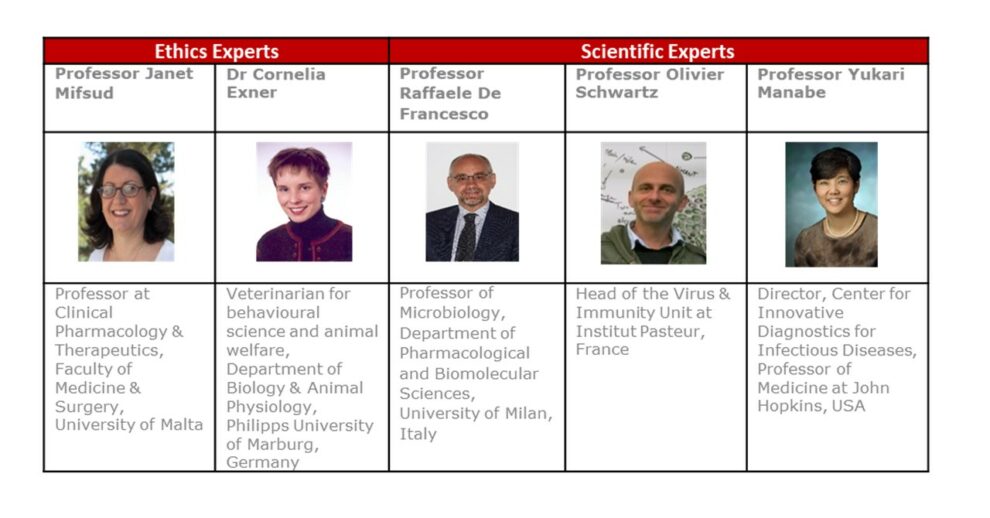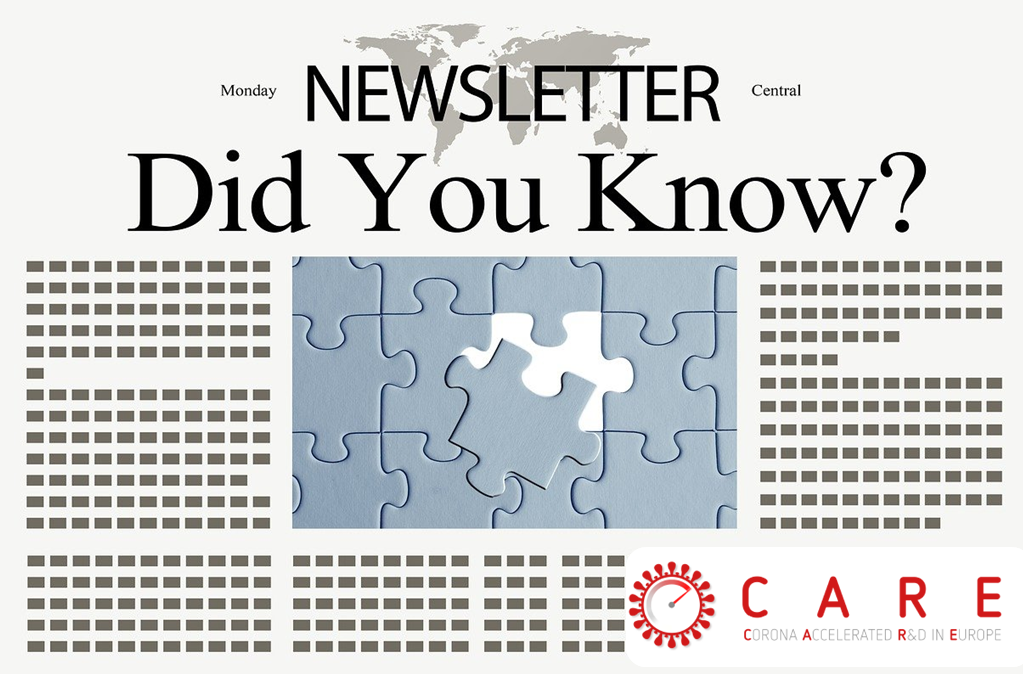In addition to these scientific successes, the SCORE consortium identified and developed a number of antiviral compound lines which will be optimized, validated and developed further after the completion of the SCORE project. These future activities will include the development of the compound series 06 and 08 within the CARE consortium, the entry inhibitors (HR2), the main protease inhibitor 13b-K, the repurposed antiviral drug Suramin and nucleotide analogue AT-9010.
Additional achievements include the development of an extensive toolbox, the generation of a reverse genetics platform and reporter gene-expressing viruses, the development of multiple animal models, and the in-depth functional characterization of specific viral proteins/functions, including the Spike protein, the RNA polymerase complex, coronavirus replication organelles, the nsp14 exoribonuclease, and the nsp14 N7-methyltransferase. Enzymatic assays were developed for a variety of important drug targets and studies into the mechanism-of-action of various compounds have been initiated.
What is the relevance to CARE?
The aims of the SCORE consortium were very much in line with the aims of CARE and able to demonstrate how small flexible consortia can establish an early response and early screening for antiviral drugs, and development of essential assays and preclinical models. Now that SCORE is finished, it benefits from CARE’s longer duration, allowing the continuation of some of its work such as the development of Series 08 compounds within CARE.
The benefits of having partners-in-common
SCORE comprised a multidisciplinary team of scientists from eight organisations with complementary expertise, coordinated by Dr. Ed Schmidt (SCORE project manager), and Prof. Eric Snijder (SCORE coordinator). All partner organisations are also part of the CARE consortium, as listed below:
- Leiden Universitair Medisch Centrum (LUMC, The Netherlands)
- Université d’Aix Marseille (AMU, France)
- Katholieke Universiteit Leuven (KUL, Belgium)
- Universiteit Utrecht (UU, The Netherlands)
- Eidgenössisches Departement des Innern (EDI-IVI, Switzerland)
- Universität zu Lübeck (UzL, Germany)
- Helmholtz-Zentrum für Infektionsforschung (HZI, Germany)
- Janssen Pharmaceutica (Janssen, Belgium)
This commonality of partnership across CARE and SCORE enabled sharing of resources and knowledge, and optimizing the distribution of work, which included the transfer of several SCORE hits to the CARE pipeline for further development. It also allowed the transfer of established assays and other technologies from SCORE into CARE such as the employment of small-animal models which were established within SCORE.
The legacy of SCORE: introducing PanViPrep
A new project, PanViPrep, received confirmation of funding 4 August 2023. This will enable the work of SCORE to continue, targeting coronaviruses plus four other virus families. The abstract is below
PANVIPREP abstract: Antiviral drugs will be key in the management of future virus outbreaks. For each viral family with epidemic/pandemic potential, stockpiles of potent drugs are needed that can be deployed when a new pathogen emerges. Such broader-acting drugs (targeting conserved viral functions) are needed as of “day one” of an outbreak, for treatment and prophylaxis (e.g. in HCW and frail patients). In combination with quarantine measures, such drugs will delay (global) spread, allowing time for vaccine-development. Since the 2003 SARS outbreak, PANVIPREP’s core partners have successfully collaborated in leading European antiviral drug research projects. This provides a solid scientific basis in combination with translational drug discovery expertise. The team includes virologists, biochemists, structural biologists, medicinal chemists and pharmacokinetics experts. Previously developed know-how and toolboxes will be a major asset to achieve immediate impact. PANVIPREP aims to greatly expand the antiviral portfolio and identify novel druggable targets of high-risk RNA viruses. Hits will be identified through (i) phenotypic antiviral screening of compound libraries (ii) structure-based drug design, (iii) in silico screening, supported by the latest machine-learning methods. We will deliver 25 to 50 high-quality, broad(er)-spectrum (pan-genus/pan-family) hit molecules/hit series. Two of these will be developed to the early lead stage, including proof of concept in animal infection models. Remaining hits will serve as chemical tool-compounds to explore mechanisms of action thereby identifying novel druggable targets in RNA virus replication. This in turn will accelerates target-based drug design efforts. The workflow will integrate best practices in antiviral drug discovery with a range of methodological innovations, including AI-based methods, thus renovating and accelerating the antiviral hit discovery pipeline for future use and contributing to pandemic preparedness.
For more information, please contact:
Dr. Ed Schmidt (SCORE project manager): e.d.l.schmidt@lumc.nl
Prof. Eric Snijder (SCORE coordinator): e.j.snijder@lumc.nl
Further reading:
https://www.score-cov.eu/Article/Home
https://health.ec.europa.eu/events/broad-spectrum-anti-viral-therapeutics-key-tool-pandemic-preparedness-and-response-2022-11-22_en
SCORE was funded by the European Union’s Horizon 2020 research and innovation programme. It started in April 2020 and closed in October 2022.





